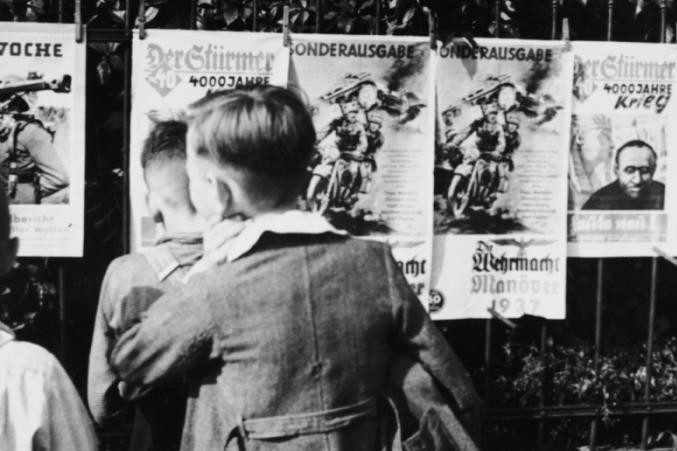Propaganda cinema has been running since the beginning of film. These movies are a way of exploiting the visceral need that people have to be a part of something; whether that be a community bonded by country, religion, ideals, love or hate. The influence of such films can have strong and lasting effects on its audiences, society and further along the road on culture at large.
Propaganda movies can serve different purposes to a government or group, from boasting the strength of a home country to justifying grotesque wars and even going as far as ostracising and disparaging minorities. Times of turmoil and war are when the controlling authorities of a state might depend most on the support of their people, and films are a convincing way to mould and shape favourable public opinions. While films like these are always being created and showcased, the magnitude of them is much higher during periods like World War I and II. Most of such films are aimed at commoners, the general bulk of the population. One such popular film would be the German ‘Triumph of the Will’ directed by Leni Riefenstahl, which glorifies Adolf Hitler and his Nazi party regime. This documentary-style film was set at the 1934 Nazi Party congress and rally in Nuremberg. In the opening credit of the film, it is stated in bold letters ‘Produced by order of the Führer.’ The director uses physical gaps and hierarchical arrangements to consistently maintain a distinct contrast between the crowds and Hitler, placing Hitler as some form of higher being or messiah. The film illustrates mass assemblies, speeches, and parades and gives the viewer the feeling of being a fly on the wall. The marching men, ubiquitous uniforms and swaying swastika flags project strength and unity; that when displayed on screen, targets to induce support and sacrifice from citizens and generate or maintain a loyal following. This documentary film was a monumental piece of history. While this movie works to idolise the authoritarian regime, many more were pushed towards the audience by Paul Joseph Goebbels, who was the chief propagandist for the Nazi Party as the Reich Minister of Propaganda from 1933 to 1945, which were made to dehumanise and demonise vulnerable minorities- particularly Jews and to reaffirm the vulgar message of racial superiority.
Other countries, too, have participated in the tricky game of propaganda. Some popular American propaganda movies include- Hearts Of The World, Reefer Madness, The Green Berets and many more. The Green Berets directed by John Wayne and Ray Kellogg was a striking cinematic marketing tool to assure that the painful consequences paid by soldiers, citizens and families did not disillusion them from the government’s cause; this movie is really a calculated response to criticism regarding the US interference in Vietnam. The movie does everything in its power to establish prejudice as it shows American soldiers doing kind gestures such as offering medical aid to desperate peasants and using children as a means to tug at heartstrings. While, on the contrary, Viet Cong are shown to be raping women and murdering children. When Wayne wrote to President Lyndon B Johnson for government approval, presidential adviser Jack Valenti stated that “If he made the picture he would be saying the things we want said.” The New York Times reviewed The Green Berets to be “a film so unspeakable, so stupid, so rotten and false in every detail.” The movie portrays how the cynical reporter who at first was against the Vietnam war, was transformed by the experience of covering the conflict and ultimately respects America’s involvement in the war. The purpose and hope of the movie are that it can act as a catalyst to achieve the same conversion in their audiences.
During World War II, the then President Franklin D. Roosevelt called the cinema theatre a “necessary and beneficial part of the war effort,” according to a March 1942 quote from the obsolete Motion Picture Herald. The Roosevelt administration asked Hollywood to ask itself, “Will this picture help win the war?” placing direct responsibility on Hollywood regarding the impact the movies they roll out can have. In June 1942, the White House assembled the Office of War Information to garner public support for the war, which simply put was a propaganda effort. The preexisting Bureau of Motion Pictures fell under the new agency, and a separate Office of Censorship was also created in order to oversee censorship of films. These new structures were put in place to raise awareness of the war efforts as well as to reduce the resentment and apathy that people may have felt due to the war.
Propaganda movies still continue to be in theatres around us and their effects are far-reaching. Movies like this not only have the ability to transform the current opinions that individuals might hold on contemporary politics but also can influence how people think of and recall history. If a crowd were constantly and ubiquitously only provided with one version of the story, which they were encouraged to empathise with, wouldn’t they be doomed to believe it?






Well researched and succinctly written. A pleasure to read Naureen.
Comprehensive and thought provoking